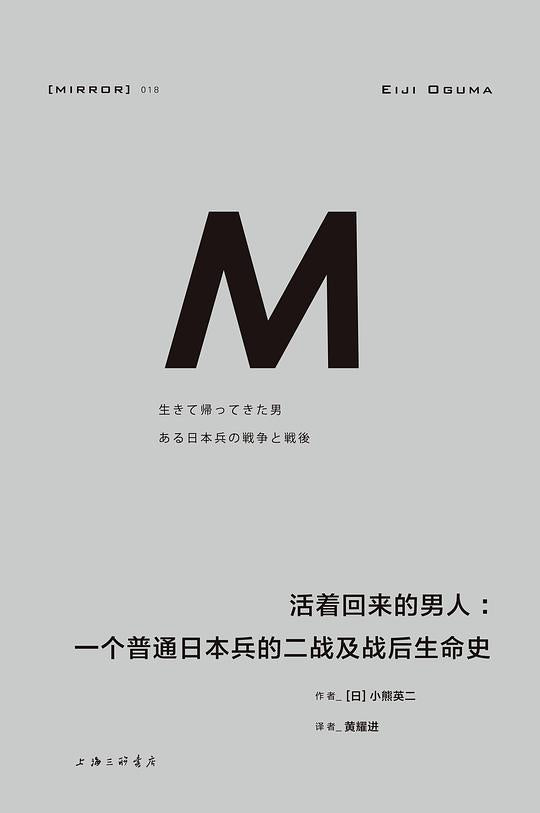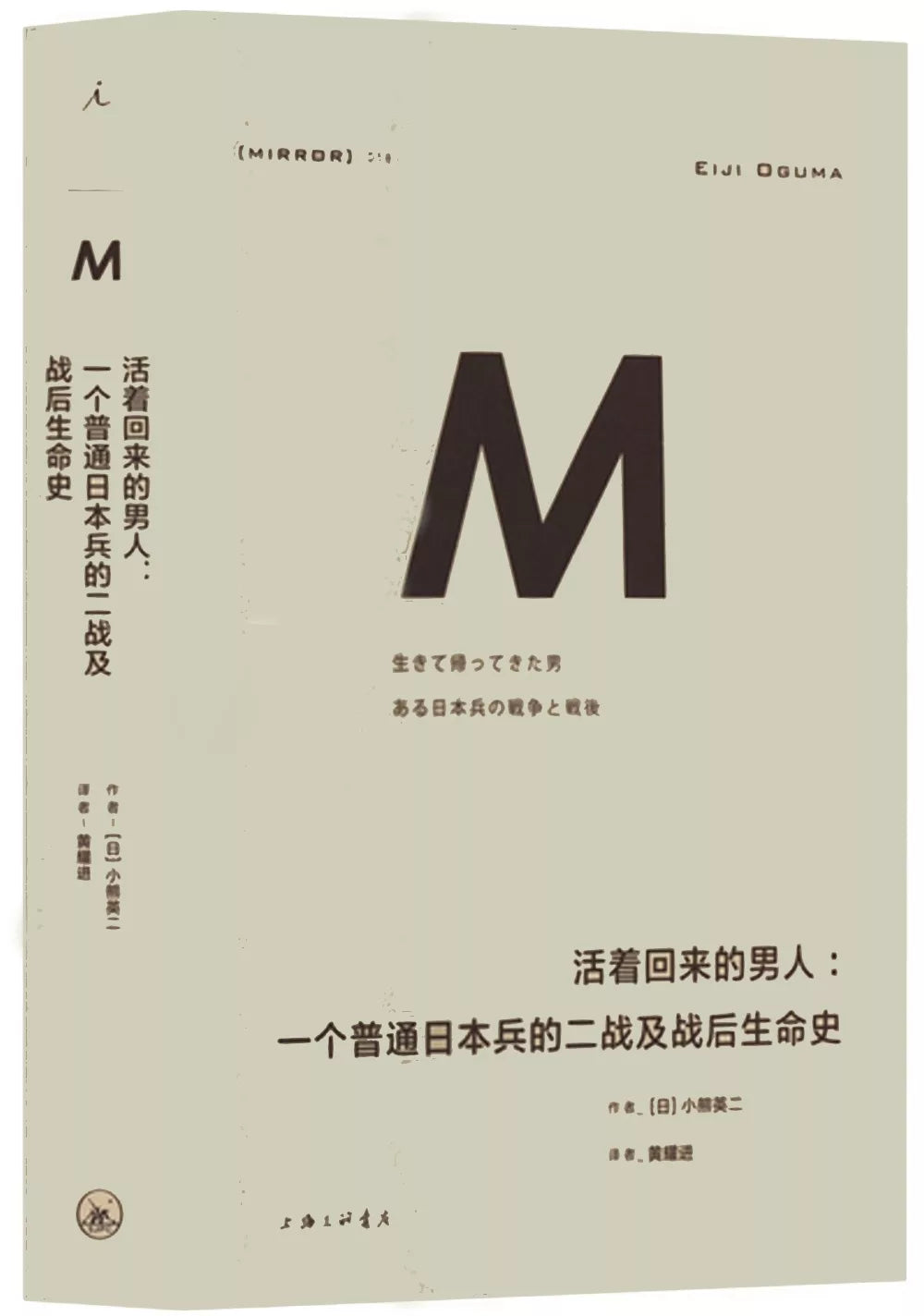1
/
of
2
The man who came back alive
The man who came back alive
[Japan] Bear Eiji Huang Yaojin 译
Regular price
$33.99 USD
Regular price
Sale price
$33.99 USD
Unit price
/
per
Low stock
Couldn't load pickup availability
About Book
About Book
生きて帰ってきた男──あるJapanese soldiers’ war after war
A history of life in Japan before and after World War II from the perspective of ordinary people. An ordinary Japanese soldier reflects the true face of World War II and the life of the lower classes. Recreates the war, society and country in the eyes of ordinary Japanese people and faces the war and its impact on individual lives.-------------------
◎Brief Introduction: "The Man Who Came Back Alive" is a book that records the history of life in Japan before and after World War II from the perspective of ordinary people. With a depth of more than half a century, it reflects the changes in the times and individual destinies before and after World War II through the life journey of an ordinary Japanese grassroots citizen.
The protagonist, Kenji Kokuma (the author's father), was born in 1925. At 19, he was drafted into the army and sent to Manchuria. He was later detained in a Soviet prisoner-of-war camp and forced to work in the harsh conditions of Siberia for three years. After returning to Japan, Kenji contracted tuberculosis, then considered a terminal illness, while constantly changing jobs. From the ages of 25 to 30, he spent the most desolate years of his life in solitude in a sanatorium. Having lost half a lung, Kenji returned to society at the advanced age of 30. Fortunately, he rode the wave of Japan's rapid economic growth, climbing from the "lowest of the lower classes" to the "lower middle class." As a senior citizen, he even joined Korean former Japanese soldiers in Yanbian, China, as plaintiffs in a postwar lawsuit against Japan for compensation. He has lived this life with all his heart and soul, never losing hope, no matter the hardships he faced or the uncertain future.
This book is both an oral history and a popular and social history. The author uses a plain narrative and a broad perspective to record the life trajectory of his father, an ordinary Japanese soldier. He also incorporates contemporary economic, political, and legal conditions, depicting aspects of class, education, occupation, and healthcare, and even reflecting on Japan's war crimes, creating a "living history of the 20th century."
-----------------------------
Highlights★ Winner of the 2015 Shinchosha Hideo Kobayashi Award, a "living history of the 20th century"
Written by the well-known Japanese sociologist Eiji Oguma, this book records the life experience of his father Kenji Oguma spanning 90 years. It reflects the changes in Japanese society before and after World War II, covering Japan's pre-war life, wartime experience, as well as social economy, policies, and legal conditions. It is a "living history of the 20th century."
A history of modern Japan from the perspective of ordinary citizens, offering a deep understanding of war, society, and the nation through the eyes of ordinary citizens. This book reveals the real lives of the "most ordinary people" in Japanese society, a rarely recorded reality. It explores the lives of ordinary people at the bottom of society, unable to resist the manipulation of power, before heading to various battlefields. What were their thoughts? Why did they leave their homes for the battlefields? After the war, how did they strive to survive and how did they view the dramatically changed society and country?
This book examines the history of World War II from the perspective of an ordinary Japanese soldier, witnessing ordinary Japanese people's reflections on the war. Historically, accounts of wartime experiences have been written by educated and influential individuals, with few accounts from ordinary soldiers, and even fewer from those who experienced the Siberian prisoner-of-war camps. This book captures the thoughts and reflections of an ordinary soldier, his reflections on the war, his understanding of the various parties involved, his views of his peers, his reflections on Japanese patriotism, and his protests against the Japanese government. It reveals a flesh-and-blood side to World War II beyond the grand narrative.
★The author Xiao Xiong Yingji combined his triple identities as a "historian", "sociologist" and "son of man" and conducted in-depth interviews with his father to write this book. It is both an oral history and a social history. The author's father responded to social issues such as "how war changes people's lives" and "how the post-war peace consciousness is formed" from a personal perspective and personal experience. It is not only the life trajectory of a single person, but also incorporates the perspectives of legal history and economic history.
★Newly added chronology, maps, family tree, photos and the author's interview with his father. Compared with the old version, the book has added a historical chronology, maps of Japan and Northeast China, the Xiaoxiong family tree, photos, and the author's interview process to enhance the reading experience.
Publication Date
Publication Date
2024-03-01
Publisher
Publisher
上海三联书店
Imprint
Imprint
Ideal Country
Pages
Pages
360
ISBN
ISBN
9787542684059
share



